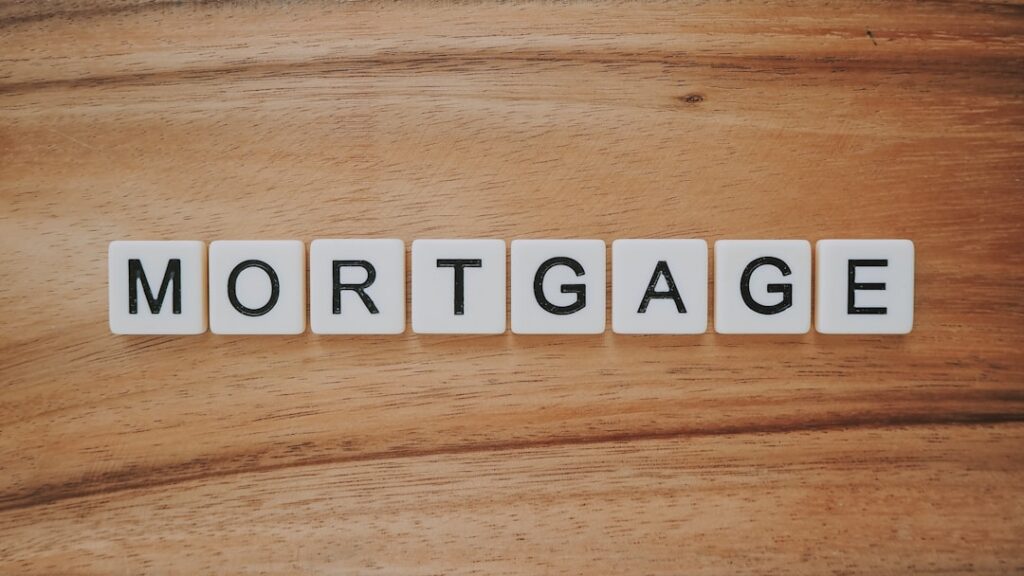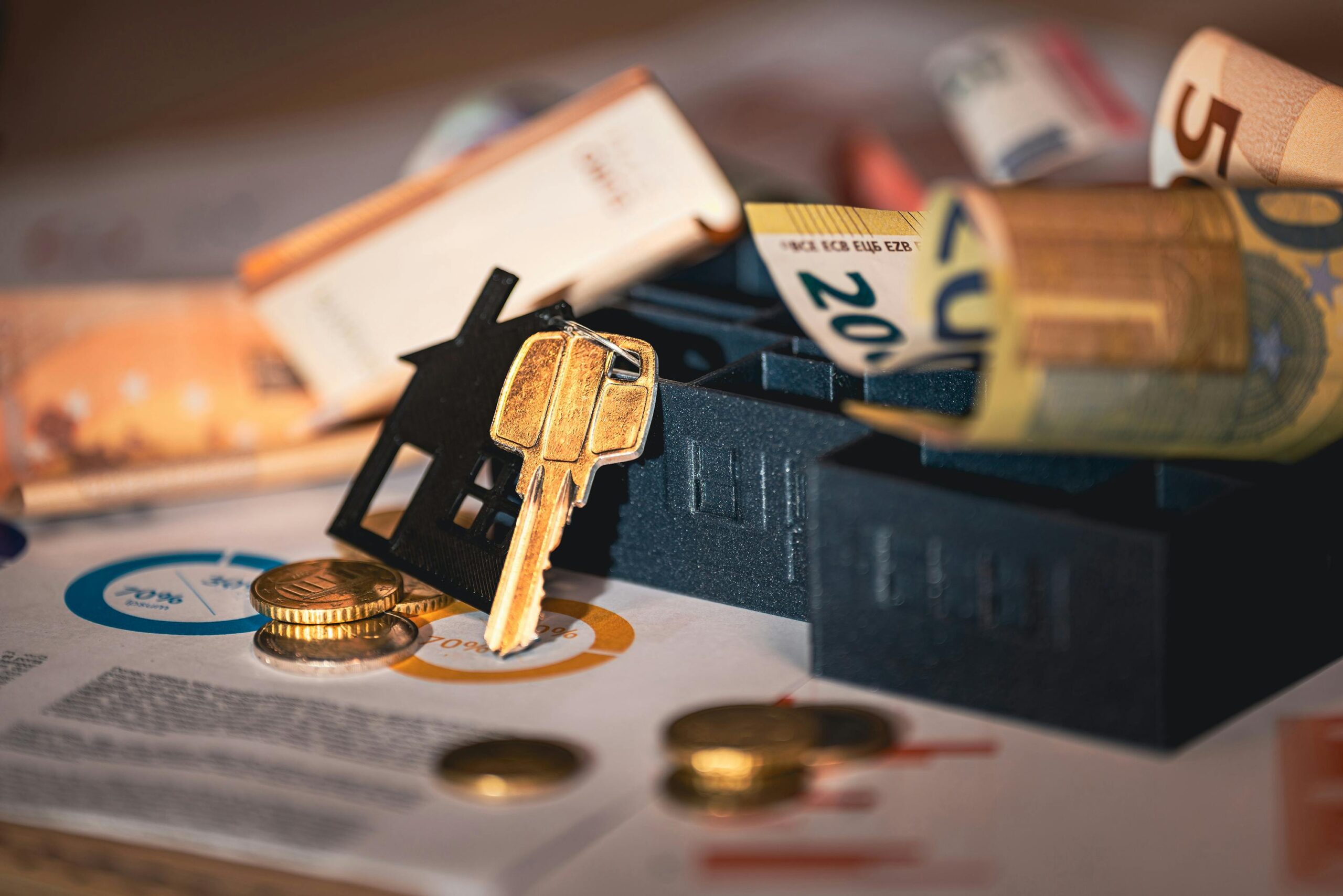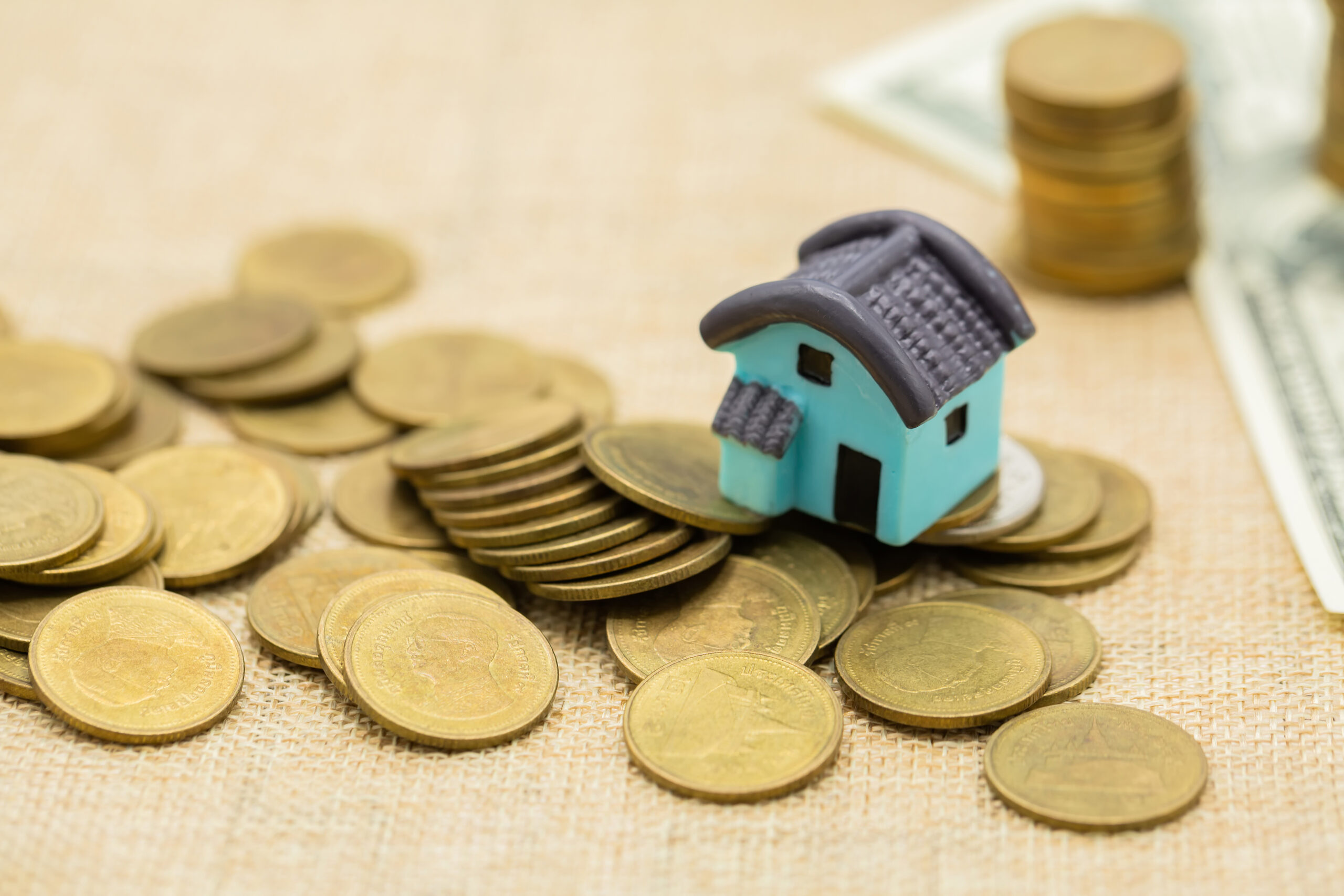Owning a home is a dream for many, but the reality of paying off a mortgage can feel like a financial marathon. Imagine being free of that heavy monthly payment in just 5-7 years—without drastically increasing your income or making huge sacrifices. It’s possible, and in this guide, we’ll explore actionable strategies to help you achieve this goal. You’ll also discover an exclusive method shared by a former mortgage lender that could completely transform the way you view homeownership.
Why Pay Off Your Mortgage Early?
Before diving into why paying off your mortgage early is advantageous, let’s first clarify what a mortgage is. A mortgage is a type of loan used to purchase real estate. It’s a legal agreement between a borrower and a lender, where the borrower agrees to pay back the loan amount with interest over a specified period—typically 15, 20, or 30 years.

The property itself acts as collateral, meaning if the borrower fails to make payments, the lender can seize the property through a process called foreclosure.
Mortgages come in various types, including fixed-rate and adjustable-rate loans. Fixed-rate mortgages have a consistent interest rate throughout the loan term, while adjustable-rate mortgages have rates that can fluctuate based on market conditions. Understanding these terms and conditions is crucial as they can significantly impact your financial planning and long-term goals.
The idea of paying off a 30-year mortgage in under a decade may seem ambitious, but the benefits are undeniable:
- Financial Freedom: Without a monthly mortgage payment, you’ll have more disposable income to invest, save, or spend as you choose.
- Reduced Interest Costs: The longer you take to pay off your mortgage, the more interest you’ll pay. Accelerating repayment can save you tens of thousands of dollars.
- Stress Reduction: Owning your home outright provides peace of mind and a sense of security, especially during uncertain economic times.
- Building Wealth: By eliminating your mortgage, you free up cash flow to focus on wealth-building strategies like investing or starting a business.
If these benefits resonate with you, watch this exclusive 20-minute interview to discover a proven strategy for paying off your mortgage in just 5-7 years. Read on to learn how to make early mortgage repayment a reality.
Step 1: Understand Your Current Mortgage Terms
Before diving into strategies, it’s crucial to understand the key aspects of your current mortgage.
A mortgage is a long-term financial commitment, and knowing its structure will empower you to make informed decisions. Key details to note include:
- Interest Rate: Is your interest rate fixed, meaning it stays the same throughout the term of your mortgage, or variable, where it fluctuates with market conditions? This distinction will significantly influence your repayment strategy and the potential savings from early payoff.
- Loan Term: How many years remain on your mortgage? Longer remaining terms generally mean more interest savings from early repayments, while shorter terms require more strategic planning.
- Prepayment Penalties: Some lenders impose penalties if you pay off your loan early. Check your contract thoroughly to understand these costs, as they can impact the feasibility of accelerated repayments.
- Amortization Schedule: Review how much of your monthly payment currently goes toward principal versus interest. In the early years of a mortgage, a larger portion typically goes to interest, meaning extra payments can have a more significant impact on reducing the principal early on.
- Escrow and Additional Costs: Determine if your monthly mortgage payment includes escrow for property taxes and insurance. This insight helps you better understand your actual loan balance and potential savings.
Why Understanding These Details Matters:
Knowing these specifics enables you to:
- Identify the most effective strategies for paying down your mortgage.
- Avoid potential pitfalls like penalties or cash flow issues.
- Evaluate whether alternative options, such as refinancing or using a HELOC, are viable for your financial situation.
By thoroughly analyzing your mortgage terms, you’ll be better equipped to implement a customized and effective payoff strategy that aligns with your financial goals.
Step 2: Create a Budget and Identify Extra Cash Flow
Paying off your mortgage early requires extra cash flow. Start by creating a detailed budget to see where your money is going. Follow these steps:
- Track Your Expenses: Use a budgeting app or spreadsheet to categorize your spending.
- Cut Unnecessary Costs: Identify areas where you can reduce expenses, such as dining out, subscription services, or impulse purchases.
- Allocate Savings: Direct the money saved from cutting expenses toward your mortgage principal.
Pro Tip:
Consider setting up automatic payments for an extra monthly amount toward your mortgage. Even small amounts can make a big difference over time.
Step 3: Utilize the Biweekly Payment Method
Instead of making one monthly payment, split your payment in half and pay biweekly. This simple change results in 26 half-payments per year—the equivalent of 13 full payments instead of 12.
Why It Works:
- Reduces Principal Faster: Extra payments go directly toward the principal, reducing the interest you owe.
- Builds Momentum: Biweekly payments align with most pay schedules, making it easier to budget.
Contact your lender to set up biweekly payments and ensure the extra payments are applied to your principal.
Step 4: Make Lump-Sum Payments

A lump-sum payment refers to a one-time, significant payment made toward your mortgage principal, over and above your regular monthly payments. This strategy can be highly effective in reducing your overall loan balance and, in turn, the interest you’ll pay over the life of the loan.
Whenever you receive unexpected income, such as a tax refund, work bonus, inheritance, or even proceeds from selling an asset, consider allocating it toward your mortgage.
Why Lump-Sum Payments Are Powerful:
- Immediate Principal Reduction: Unlike regular payments, lump-sum payments go directly toward reducing the principal balance, minimizing the interest accrued in subsequent months.
- Flexible Application: You can decide how much and when to contribute, based on your financial situation.
- Accelerated Payoff Timeline: Each lump-sum payment shortens the length of your mortgage, potentially shaving off years from your repayment schedule.
Examples of Lump-Sum Opportunities:
- Tax refunds during tax season.
- Annual bonuses or performance incentives.
- Income from selling personal assets, such as a car or collectibles.
- Unexpected windfalls, like inheritances or monetary gifts.
Key Tip:
Notify your lender that these payments should be applied to the principal, not future payments. This ensures maximum impact and accelerates your progress toward becoming mortgage-free.
Step 5: Increase Your Income Streams
Sometimes, cutting expenses isn’t enough. Boosting your income can accelerate your mortgage payoff timeline. Here are a few ideas:
- Side Hustles: Freelancing, tutoring, or selling products online can generate additional income.
- Invest in Skills: Upskilling or obtaining certifications can lead to higher-paying job opportunities.
- Rental Income: If you have extra space, consider renting it out on platforms like Airbnb.
Ready to learn an alternative strategy for paying off your mortgage without drastically changing your income or expenses? Watch this exclusive 20-minute interview with a former mortgage lender to unlock the secret.
Step 6: Refinance for a Shorter Loan Term
Refinancing to a shorter loan term, such as 15 or even 10 years, is a powerful strategy to save money on interest and pay off your mortgage faster. This approach involves replacing your current loan with a new one that has a shorter repayment period and, ideally, a lower interest rate.

While it increases your monthly payment, the overall cost of the loan decreases significantly due to reduced interest payments.
Why It Works:
- Lower Total Interest: Shorter loan terms often come with lower interest rates, meaning you’ll pay less over the life of the loan.
- Motivation to Stay on Track: The higher monthly payment can serve as a built-in discipline to prioritize your mortgage payoff.
- Faster Equity Growth: A shorter term means more of your payments go toward the principal rather than interest, helping you build equity faster.
Steps to Refinance Effectively:
- Assess Your Finances: Ensure your budget can comfortably handle higher monthly payments without compromising other financial goals.
- Shop Around: Compare rates and terms from multiple lenders to secure the best deal. Consider working with a mortgage broker for access to more options.
- Consider Closing Costs: Factor in the fees associated with refinancing, such as application fees, appraisal costs, and origination fees. These should be weighed against the savings you’ll achieve.
- Lock in Your Rate: Once you find a favorable rate, lock it in to protect yourself from market fluctuations before closing.
Considerations:
- Financial Stability: Ensure you’re financially stable enough to handle the increased monthly payments.
- Break-Even Point: Calculate how long it will take to recoup the closing costs of refinancing through your monthly savings.
- Long-Term Goals: Align your refinancing decision with your overall financial objectives, such as retirement or investing.
Refinancing for a shorter loan term can be a game-changer for those looking to achieve financial freedom faster. Take the time to evaluate your options and choose the path that best fits your circumstances.
Step 7: Use a “Mortgage Accelerator Program”
Mortgage accelerator programs are innovative strategies that leverage a home equity line of credit (HELOC) to expedite your mortgage payoff.
A HELOC is a flexible loan that allows you to borrow against the equity in your home, and it can serve as a powerful financial tool when used strategically. Here’s how this program works in detail:
- Open a HELOC: Begin by securing a HELOC with favorable terms from your lender. This line of credit provides you with access to funds that can be used to pay off a portion of your mortgage.
- Deposit Income into the HELOC: Treat your HELOC like a central account for your finances. Deposit your entire income into the HELOC, which reduces the outstanding balance temporarily and minimizes interest charges.
- Pay Down Principal: Use the HELOC to make targeted, larger-than-usual payments toward your mortgage principal. This reduces the overall balance more quickly and cuts down on the total interest paid over the life of the loan.
Benefits of a Mortgage Accelerator Program:
- Interest Savings: By reducing your mortgage balance faster, you’ll pay significantly less interest.
- Cash Flow Management: With a HELOC, you have ongoing access to funds for emergencies or large expenses.
- Flexibility: This program works well if you have a variable income or want to maintain liquidity.
Important Considerations:
- Discipline is Key: This strategy requires careful financial management to ensure you’re not overspending from the HELOC.
- HELOC Costs: Be aware of fees, variable interest rates, and repayment terms associated with HELOCs.
For those committed to financial literacy and disciplined spending, a mortgage accelerator program can dramatically shorten your mortgage term and bring you closer to financial freedom.
The Power of “Turn Your Home Into a Private Bank”
Transforming your home into a “private bank” is a game-changing strategy that can significantly accelerate your mortgage repayment while also opening up avenues for financial growth. This little-known method, shared by a former mortgage lender, is rooted in leveraging your home’s equity and financial discipline. By adopting this approach, you can achieve the following:
- Pay Off Your Home in 5-7 Years: This strategy focuses on redirecting your financial resources in a way that reduces your mortgage balance quickly without requiring dramatic lifestyle changes.
- Create Passive Cash Flow: By turning your home into a financial tool, you can generate ongoing cash flow that supports other financial goals, such as investments or building an emergency fund.
- Protect Against Economic Downturns: This method provides financial flexibility and resilience, allowing you to navigate economic challenges with greater confidence.
How It Works
The concept involves using tools like a home equity line of credit (HELOC) or other financial instruments to strategically pay down your mortgage principal. The process is structured to ensure that every dollar works harder for you, reducing interest payments and shortening the loan term. Discipline and a clear plan are essential to maximizing the benefits of this approach.
Want to know more?
Watch the exclusive interview here.
Pros and Cons of Paying Off Your Mortgage Early
Pros:
- Financial Freedom: Eliminating monthly mortgage payments frees up cash flow for other purposes.
- Interest Savings: Accelerating payments reduces the total interest paid over the life of the loan.
- Stress Reduction: Owning your home outright provides peace of mind and security.
- Increased Equity: Fully owning your home gives you 100% equity, which can be leveraged for future financial opportunities.
- Retirement Readiness: A paid-off home reduces expenses during retirement, making it easier to live on a fixed income.
Cons:
- Reduced Liquidity: Putting extra money toward your mortgage means those funds are not easily accessible in emergencies.
- Opportunity Cost: The money used to pay off your mortgage could potentially earn higher returns if invested elsewhere.
- Prepayment Penalties: Some lenders charge fees for paying off loans early, which could offset potential savings.
- Lack of Diversification: Focusing solely on paying off your mortgage might limit investments in other asset classes.
- Tax Considerations: Paying off your mortgage early could reduce the mortgage interest deduction on your taxes (if applicable).
Frequently Asked Questions
Is it worth paying off a mortgage early?
Yes, paying off your mortgage early can save you significant money in interest and provide financial freedom. However, it’s essential to weigh this against other financial goals, such as investing or building an emergency fund.
What are the risks of paying off a mortgage early?
The primary risk is reduced liquidity. Tying up cash in your home means you may have less available for emergencies or investments. Ensure you maintain a healthy cash reserve before accelerating mortgage payments.
Can I pay off my mortgage early without penalties?
Check your mortgage agreement. Some lenders impose prepayment penalties, which could impact your decision to pay off your mortgage early.
Final Thoughts
Paying off your mortgage in 5-7 years is an ambitious yet achievable goal with the right strategies. From biweekly payments and lump-sum contributions to exploring innovative methods like HELOCs, you have multiple tools at your disposal.
If you’re ready to take control of your financial future, don’t miss this opportunity to learn from a former mortgage lender. Watch the 20-minute interview now and discover how to turn your home into a private bank.
Your journey to financial freedom starts today. Why wait?
Affiliate Disclaimer: BestMortgages.co may include affiliate links, which allow us to earn a small commission when you make a purchase through them. This helps support our site at no extra cost to you. Thank you for your support!




0 Comments